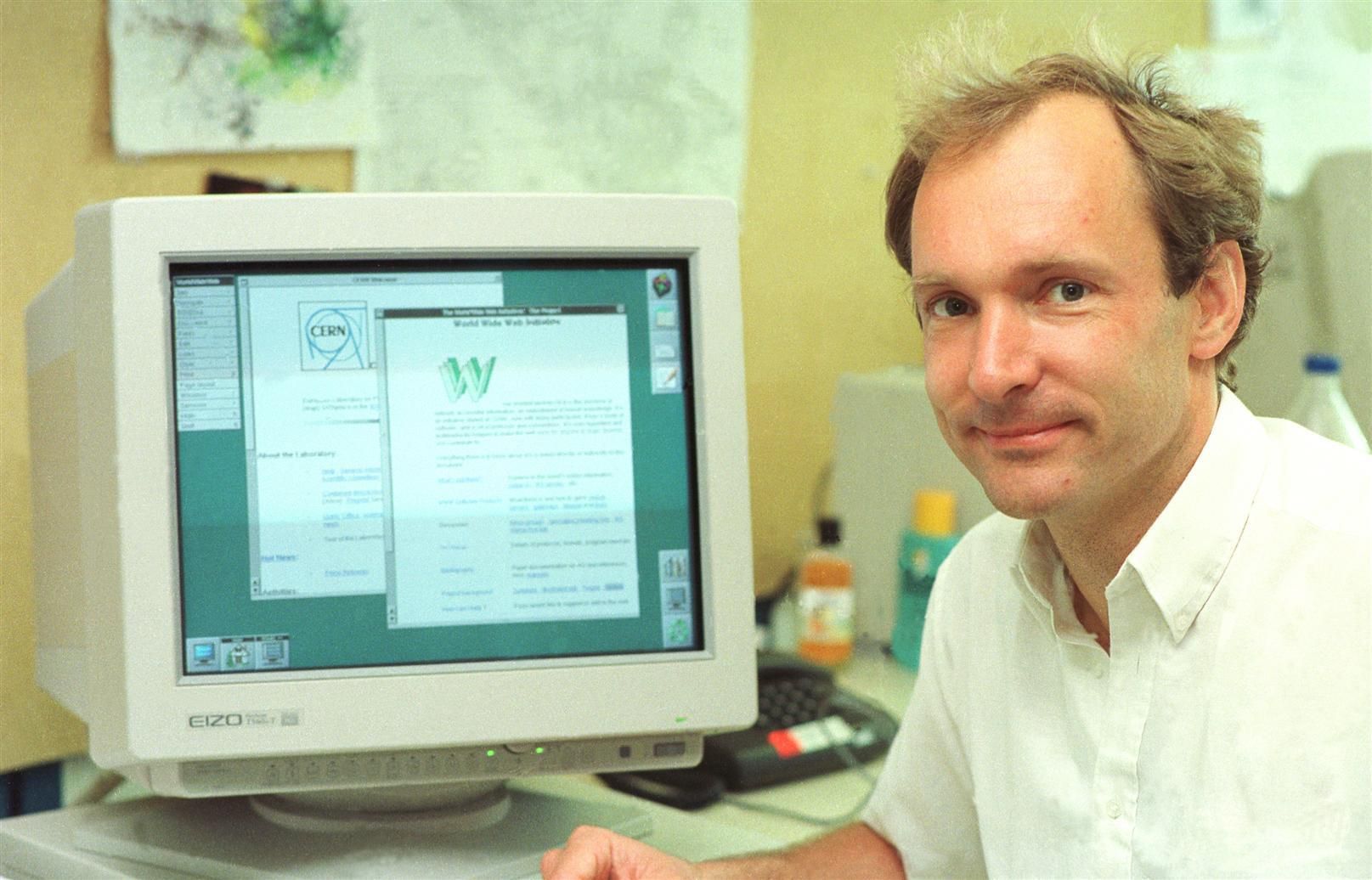- Almost Intelligent
- Posts
- A Meaningful History
A Meaningful History
A recent article in The New Yorker profiles Tim Berners-Lee, inventor of the World Wide Web. The article's subhead is "Now he wants to save it."

Perspective on the Speed of Change
The author, Julian Lucas, writes about a wonderfully serene Berners-Lee, especially as they paddle in a canoe in the backyard pond. There is no real reference to Tim’s quest to save anything, except for nature. But this image and headline from CNN explains: “Inventor of the world wide web wants us to reclaim our data from tech giants.” |  Tim Berners-Lee. Above: @CNN image. Cover image of Berners-Lee, @CERN |
When Tim Berners-Lee opened the web to everyone, he wasn’t trying to build a product — he was trying to connect people. His goal was simple: to make information accessible to anyone, anywhere. (Maybe he didn’t mean all your information.) But in doing that, he also set a pattern we’ve seen play out with every big disruption — wonder, fear, adaptation, and perhaps inevitable full-on change. The web changed not only how we connected, but how we learned — and taught — and now AI is doing the same, only faster and with more uncertainty.
I’m not teaching this semester, but I drop in on occasion to remind myself that fear of AI and technology is alive and well in the gestalt of college life. Most professors are afraid of AI (even in Silicon Alley, I am told). I get that. Control, being usurped.
I made the mistake last year of assuming that Gen Z students are totally into AI. I asked my class to use an AI tool of their choice to create a marketing video. I gave them 15 minutes. You’d think I was running a practical biology lab with all the squealing and laughter. When the first video was viewed, just like after a frog dissection, they inhaled “Wow!” and exhaled, “Oh, no way. This is sooooo creepy.”
The Walton Family Foundation found that 41% of Gen Z feel anxious using AI, and nearly half worry it weakens their critical thinking. They’ve grown up in constant change but haven’t yet seen how it settles. They think every disruption is the disruption — when in truth, it’s just the next one.
Personally, I think that AI challenges my brain unlike anything else I’ve ever known or learned. More on that in a future newsletter.
Too Fast
Berners-Lee saw the World Wide Web as a system to help people connect, not to automate how we ignore each other. Somewhere along the way, we added the “auto” part of communication. This week, I received two email responses that could only have been AI-generated: polite, confident, and completely nonsensical. They reminded me of that classic New Yorker cartoon — the guy on the phone saying, “How about never — is never good for you?” Back then, it was a joke about human avoidance; now it’s a preview of machine efficiency.
Premise: I sent an email to someone I hadn’t seen in maybe a decade. Opening: Remember when? Specific example. Middle: Interesting on your new company and maybe it could work/how in my classes? My Ask: I have this new thing I’d like to talk to you about. Specifics of it and how it relates to his experience. Closure: I suggested a time to talk. | Nice to hear from you. Thanks for reaching out. Communications is an important part of our customer base. I hope you are getting value from the platform! (undisclosed) |
Writing with AI: But of Course
While I intend to send a slightly snappy, maybe passive-aggressive response to that email, we should give everyone, most importantly ourselves, a break. I personally love to write, and generally don’t grapple with “story starters.” And like most, “if I had more time, I would have written a shorter letter.”
But, each semester, more than a handful of students ask for a letter of recommendation. Last week, for one student, Yale Law School sent a Guide to Professors: Writing Letters of Recommendation. Among other things it stated that the letters should be at least 1-2 pages in length. Yes: I did upload the student’s work and my comments to ChatGPT. No: I did not write more than a page. Yes: I edited. Time to completion: 10 minutes.
The tools get smarter, and thank God for that, but the meaning — the connection — still depends on the person. So if this week’s inbox feels like it’s been hijacked by algorithms, remember: you’re still the human in the loop and you’re still in control.
Stay curious, because change is almost always inevitable.
Connie
UP NEXT: I’m getting back on track here as I am behind on my weekly consistency. Hey, I’m human. 🤗